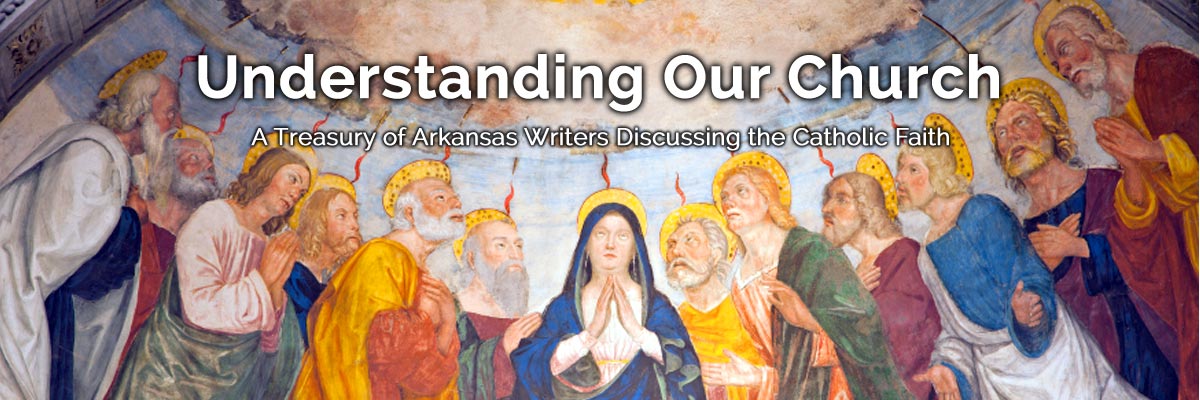Official Website of the
Catholic Diocese of Little Rock
From mouths of babes about Pope Francis’ environment encyclical
Published: July 16, 2015
By Matthew Glover
Chancellor for Canonical Affairs
As most of the world now knows, Pope Francis recently published an encyclical entirely on the environment. Since I cannot hope to surpass his divinely inspired wisdom on this topic, I thought it best to consider a different source of wisdom: the mouths of babes.
The other night I turned to my young son and asked, “Son, what’s your favorite part about the environment?” His response: “Um, I really like all the trees — and how we give them air and they give us air.”
Unlike my son’s innocent mind, when my jaded adult mind hears “environment” it immediately turns to questions of global warming (hoax or science?!), political disputes (government fix or free market solutions?!) and pollution (inevitable byproduct of progress or avoidable precursor of the apocalypse?!). How I wish my mind would instead turn, like my son’s, to trees.
Although the encyclical is meant to impact the world, it’s not directed at any particular country, much less any particular political party. As a Catholic who happens to be American, I must always guard against becoming so self-centered as to forget that the pope’s audience is ultimately worldwide.
The pope is challenging me to view the world with faith like a child, but not with naiveté. Since Pope Francis’ environmental stance has been characterized as a novel development in Catholic teaching, I’ve found it easier for my newfound inner child to focus on what his encyclical is NOT (rather than what it is).
His encyclical is NOT pantheistic or neo-pagan. He’s demanding not that we worship the environment, but that we respect it as an unmerited gift from the God we worship.
Those who worry the pope has been seduced by pantheistic environmentalists haven’t read St. Ignatius of Loyola’s “First Principle and Foundation.” (The pope, after all, is a Jesuit.) Creation is there to help us praise, revere and serve God. But if we abuse it, if we ignore it, we lose our best God-given tool for getting to know him. That’s not pantheism; it’s practical reality.
His encyclical is NOT a political document, and it’s certainly not aimed at the specific political battles here in the United States. Political liberals may consider this a vindication of all of their environmental policies. Political conservatives may disregard it as overreaching into an area about which the pope has no scientific competency.
The truth is in neither extreme. The pope is the leader of the worldwide Catholic Church. Although the encyclical is meant to impact the world, it’s not directed at any particular country, much less any particular political party. As a Catholic who happens to be American, I must always guard against becoming so self-centered as to forget that the pope’s audience is ultimately worldwide.
Finally, the pope’s encyclical is NOT new, at least not in terms of sacred tradition. Both St. John Paul II and Pope Emeritus Benedict XVI warned of the dangers of pollution and stressed the importance of environmental respect and conservation. Pope Francis is not saying anything that isn’t in line with previous popes and previous Catholic teachings.
The difference here is Pope Francis is devoting an entire encyclical to this one topic. He’s making clear his priorities. As Catholics, we are called to submit loyally to the Holy Father’s priorities. More importantly, we are called to protect all of God’s creation precisely because we are all God’s children.
Before tucking my own child into bed, I also asked him: “What’s your favorite part about Pope Francis?” Without hesitation, he responded: “Well, he’s a pope, so that’s the best part, that he’s a pope.”
With his childlike faith, he reminded me that I love Francis not because of my own ideology or political leanings or theological perspective. I love Francis because he is our pope — just like I loved the pope before him and the pope before him.
In their own ways, they have each challenged me to foster a greater love for God and for others. And for trees; I love trees, too.




